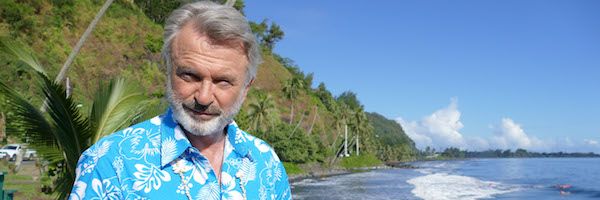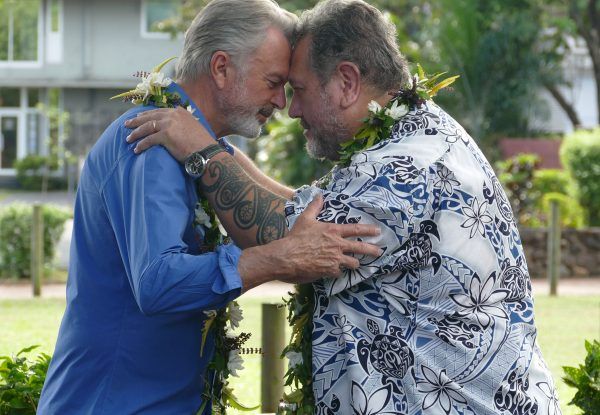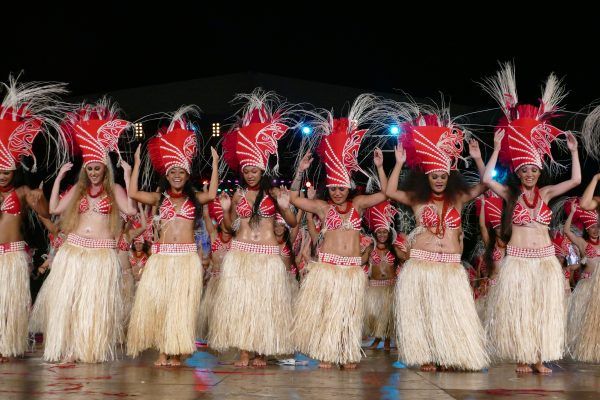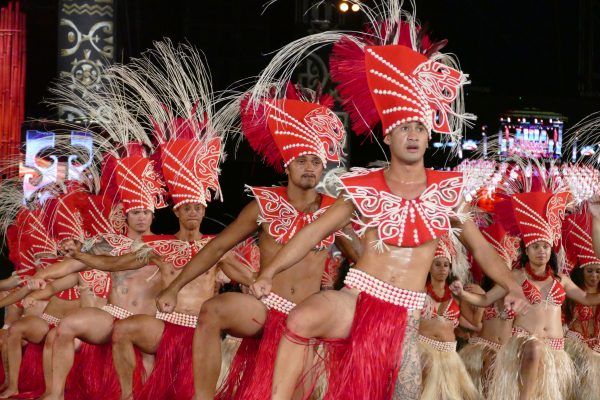The series The Pacific: In the Wake of Captain Cook, airing on Ovation, follows actor Sam Neill on a journey that takes him to islands and lands that Captain James Cook explored 250 years ago, meeting descendants he came across on his voyages and looking into the triumphs and disasters that Cook left in his wake. On this incredible adventure, the actor traveled to such locations as Tahiti, New Zealand, Australia, Hawaii and Alaska, experiencing the people and their cultures, along the way.
While at the Ovation portion of the TCA Press Tour, Collider got the opportunity to sit down and chat 1-on-1 with Sam Neill about how privileged he felt to have an experience like this, how daunting the project, just how immense the Pacific is, having a different appreciation for the world around him, the stand-out memories, why he has no desire to retire from acting, and what he has coming out next.
Collider: What was it like to get to have an experience like this?
SAM NEILL: It was a privilege. In the first episode, I went to Raiatea, which is the most sacred island in the Pacific. And then, we end up in Alaska, and you couldn’t ask for more contrast. We go to go to amazing places. It was not only a big experience, but it was a profound experience that was very moving for me, at times.
Does that make it hard to go back to regular life and acting, after you finish something like this?
NEILL: Well, I had a bit of a guilty conscience, at the end of the year, to do my day job again. I took four movies last year, to make up for it. It’s not a travel log, but it is a travel log. It’s not a history series, but it is about history. It’s not an art series, but it certainly is concerned with the arts. It’s not a political series, but it does touch on politics.
When this idea was brought to you, what was your initial reaction to doing this?
NEILL: It was daunting because you’re taking on something that’s potentially controversial. There are a lot of Cook enthusiasts, and there are a lot of Cook haters out there. I realized there was a lot for me to learn, and it was already apparent to me that the history that I was taught at school wasn’t actually right, so it was good to get some wholly different perspectives. But once we jumped into it, it was a an immersive process, sometimes literally.
At any point were you like, “Why did I sign up for this? Can I be done now?”
NEILL: Quite often, but I would do it again, in a heartbeat. And there are places that I would go back to tomorrow, if I could. The Aleutian Islands, for instance, is absolutely amazing, and American soil, by the way. We forget that the Pacific is so immense. You can fly forever, and you’re still not there. It’s that sense of scale, if you can try to get your head around what these great voyages were – Cook’s voyages and the Polynesians before him. Every voyage was dangerous, the most traumatic being when Cook’s crew struck the Great Barrier Reef. There was a whole cascade of good fortune that they had. A coral head put a hole in the front of the ship, which should have sunk like a stone, but, they were finally able to get off of the reef, after two tides. They were all in a state of mortal terror, out of the sight of land, and no one on board could swim, which is an extraordinary thought. They used a sail covered in animal shit, because they had animals on board, for glue, like a bandage over the hole in the bow of the boat. What they didn’t know was that, underneath the bandage, the very coral head that had put the hole in the ship was stuck in there, and the bandage was holding it in place. Cook had a lot of very good luck. They didn’t have GPS, so they didn’t know where they were. They were sailing into uncharted waters, as were the Polynesians before them. Looking for what? Nobody knew.
Do you feel like you have a different appreciation for the world, in general, after doing this series?
NEILL: We always have to remind ourselves of how fragile life on this planet is, and what responsibilities we have. I was talking to the British High Commissioner, and part of her remit is the Pitcairn Islands. There’s one uninhabited Pitcairn Island, which is the epicenter of floating plastic in the world. You could not be in a more remote place, if you tried, and yet, all of the plastic in civilization lands up there. It’s a really heartbreaking idea.
What were the most memorable times you had on this journey?
NEILL: I met the most extraordinary people, all over the Pacific, but especially the people in Vanuatu who, in a material sense, are the poorest people I’ve ever come across. They own nothing, but in a well being sense, they are easily the wealthiest people that I’ve come across. These people are completely content and happy. It’s a reminder that a new car is just a bloody new car. It’s not going to make you happy. These people don’t own anything. They live incredibly simple lives, and they do it deliberately. They aren’t wearing t-shirts from the Gap. The aren’t interested in air conditioning. They have all that they think they need.
When you felt like you needed to return to acting, did it change how you wanted to choose projects?
NEILL: I’m 71 now, but I still want to put a few more rounds on the board. I’m conscious that there’s only a limited amount that I’ll get done, before I get shuffled into retirement, but I certainly have no desire to retire. I care, but I don’t care. If it looks like fun and it looks like quality, then I’ll do it. I don’t feel compelled to work, or not to work. I did four films last year, that I really enjoyed all of, but I was really exhausted, at the end of the year. I thought I might have worked a bit too hard, so this year, I will work a bit less, but I’m sure there are lots of things around that look like they might be fun.
What can you say about the films you have coming out next?
NEILL: [Ride Like a Girl] is a feel-good family type of film. It’s about the first woman, who won the Melvin Cup as a jockey. Teresa Palmer plays that character, and I play her father. It’s a girl power story. And then, I did [Palm Beach], that Rachel Ward wrote and directed, with Bryan Brown, Greta Scacchi and Richard E. Grant. That’s about a reunion weekend.
The Pacific: In the Wake of Captain Cook airs on Thursday nights on Ovation.




